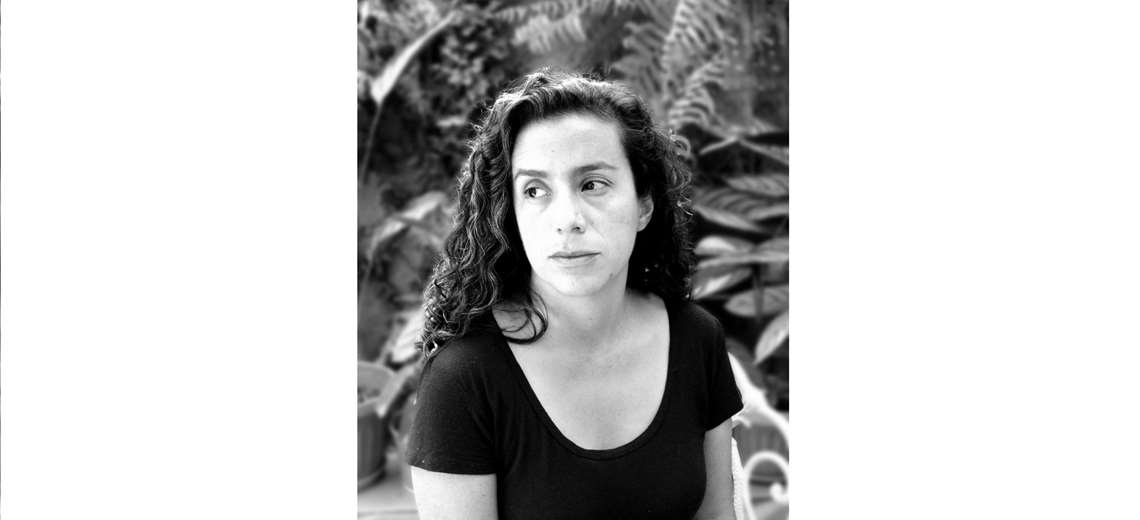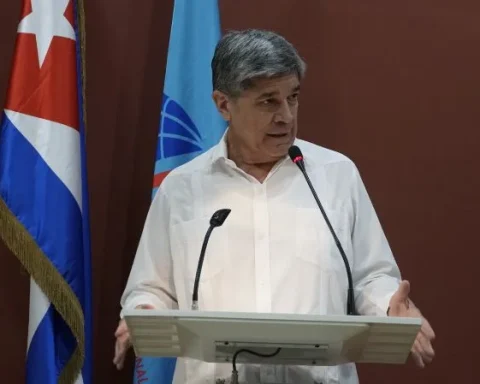Claudia Michel was born in Potosí but has lived in Cochabamba for more than a decade. Her storybook Chubascos Isolados is one of the novelties from the Mantis publishing house for FIL Santa Cruz 2022. There are 19 intimate, contained, brief short stories. Before coming to Santa Cruz, Michel will present her book in Cochabamba, tonight at 7:00 p.m., at the Simón I. Patiño Center. She will be accompanied by the author Rodrigo Hasbún and the film critic Alba Balderrama.
In our city will be the Saturday, June 4, he will present it at the Enrique Finot room, at 9:00 p.m. She will be accompanied by the writers Lucía Carvalho and Natalia Chávez.
_Why did you decide on the title of isolated showers for your book?
When it came time to name the book, the rainy season was ending. Every day as he wrote he could see the storms brewing. The clouds came from anywhere, but mostly from the mountains.
There were good storms, but I could also see sporadic, scattered rains that discharged their small intensity in a specific place. For me, the most enjoyable thing about that time of year is that sky with black clouds and spaces of sun.
Many of the stories in this book are linked to rains, floods and pools, that made me look in hydraulic glossaries, I wanted to give it a name that had to do with the water, but I couldn’t find anything I liked. From hydraulics I went on to climatological terms and there I did find several. Isolated showers was what I had seen all that late summer while reviewing the texts, and also, the stories are a bit like that: similar but different events, distributed in the same space.
_two popcorn and Invisible they were already in your book choremafrom 2021 Are there any other stories that come from other publications?
No, there are no other stories coming from other publications. chorema Y showers isolated they are brothers. They have things that reveal their relationship, but each one is different. I wrote them one after the other, without much pause, partly because they have certain common links.
_There are several stories starring children and adolescents. What is the most difficult thing to narrate from this perspective and why are you interested?
The truth is that I can only identify four that have this feature, but it is certainly present. It is a choice that has not been premeditated and that little by little has been gaining strength.
The most difficult thing is to tell the feeling of estrangement that children have before the given things of adult life. And in the case of adolescents, precisely because they are ceasing to be children and the change between one state and another, is always full of conflicts, pure material for writing.
_The epigraph of the book speaks of the nature of stories: they are subtle and contained, and almost always foreshadow something strange -or bad- that is about to happen, which may not be very violent, but it does produce changes in the protagonists. What are you looking for with this type of narrative?
I am interested in the smallest things. The small gestures and situations that are forged to transform people’s lives, the places where changes occur that no one sees. I have wanted to count those tiny spaces because it seems to me that in their accumulation, as happens with dripping or in the concentration of clouds, is where the power of transformations lies.
_I was also struck by the fact that plants and gardens are an essential part of several stories. Did you think about that when building isolated showers?
It is another theme that came naturally. Thanks in part to family and friends who are fond of plants. There are two key aspects of them that interest me: time, which is almost always long, slow, oblivious to human urgencies, and on the other hand, silence. Plants do not make sounds, or at least it is not their main function. I find that silence both haunting and beautiful. I suppose it also has to do with living in Cochabamba and being more attentive to the flora of the valley that has its own personality.
_How do you feel about publishing in Mantis and how do you see the work of publishers run by women in Bolivia?
I feel happy and honored to publish in Mantis, it is an important moment for me.
More than editorials directed by women, I find it very interesting that they are editorials directed by women writers. It is a noticeable difference. Without detracting from other efforts, I think there is a different impetus, a much more complex vision of writing in its link with the book as an object and the entire publishing industry. It is not by chance that there are authors directing publishing houses, but it is a response to the complexity of the publishing world in Bolivia and Latin America. An energetic response, which I hope will gain more momentum and continue to develop.


















